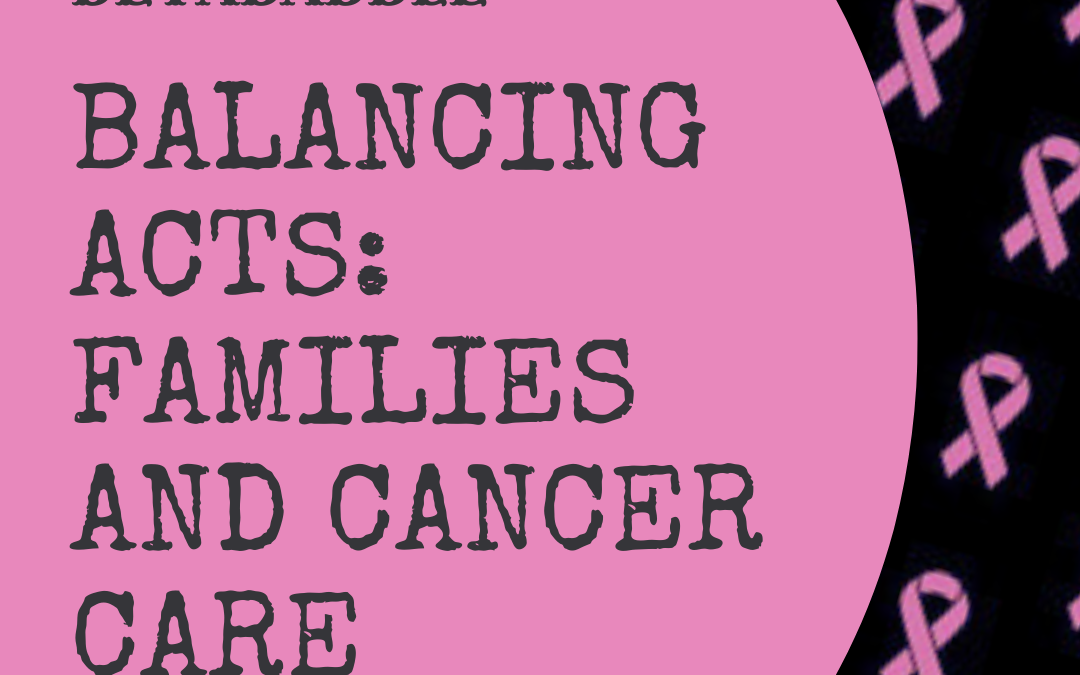Cancer. When you hear the word, you get goosebumps. Although we are all aware what cancer might involve on a physical basis, there isn’t much awareness about what goes on psychologically when the patient and their family hear the words “Unfortunately you have cancer”.
The Emotional Rollercoaster
Receiving a cancer diagnosis can be a life-changing experience. It often causes a variety of emotions, including shock, fear, anxiety, sadness, anger, and uncertainty. In a study conducted by Morris (1992) it was found that patients with cancer that exhibit a “fighting spirit” or “denial” responses are said to have a better prognosis than those patients that exhibit “stoic acceptance” or “helpless/hopelessness” attitudes. The psychological impact of a cancer diagnosis is profound, complex, and can lead to feelings of vulnerability and existential crisis (Greer, 1991). Individuals may struggle with fear of the unknown, implications for the future, and their sense of identity.
Coping Mechanisms
Coping mechanisms are strategies and techniques that individuals use to manage and adapt to stresses and challenges, in this case, those caused by cancer. These mechanisms can be divided into two main adaptations: those that focus on issues and those that focus on emotions. Problem-focused coping includes actions taken to address the source of stress, such as seeking information and following treatment plans. Emotion-focused coping focuses on managing emotional responses to stressors, including seeking social support, practicing mindfulness, and engaging in activities emotions (Folkman & Greer, 2000).
Psychosocial Effects of Cancer
Thanks to advances in medical science, more and more people are experiencing longer lives despite having cancer. Although the significant medical needs of these patients can be well managed, the psychosocial and emotional needs are often overlooked. Almost every aspect of a person’s life can be affected, as cancer causes many stressors and can lead to a significantly compromised quality of life. For instance, estimates of the prevalence of psychological difficulties range from 23% to 66% of the breast cancer population. Massie and Holland (1987) found that 53% of cancer patients evaluated had normal adjustment to stress; however, nearly half (47%) had clinically evident mental disorders. More than two-thirds (68%) suffered from reactive anxiety and depression.
Body Image
Body image is one of the most profound psychological consequences of cancer treatment, affecting patients at many different pathological sites. Scars and physical deformities are reminders of the painful experience of cancer and its treatment. The stress and depression caused by body image problems can further affect other areas of the patient’s and family’s lives, such as sexual intimacy, self-esteem, and sexual dysfunction. Among women who have had breast surgery, concerns range from distress caused by scarring to feelings of reduced sexual attractiveness and restrictions on the use of certain types of clothing.
Psychological Issues among Terminal Patients
Cancer patients in the late stages of their disease are especially vulnerable to mental and physical complications. Suicide is also more common in later stages. For example, Farberow, Schneidman, and Leonard (1963) found that of hundreds of suicides studied, 86% occurred in the early or late stages of the illness. Some patients may experience emotional distress, including symptoms of guilt, anger, depression, and anxiety. It seems that what cancer patients fear most is the process of dying, rather than death itself (Cramond, 1970). Fear may prevent patients from discussing these concerns with their doctor or others. Weisman and Worden (1976, 1977) found that the terminal cancer patients who survived longer were those who believed death was inevitable and refused to let others go.
Psychosocial Interventions
Psychosocial support is a fundamental aspect of cancer care. Interventions such as counselling, support groups, and psychotherapy can help patients manage the emotional challenges of their diagnosis (Kissane, Bultz and Butow, 2016). These interventions address psychological distress, improve overall quality of life, and support patients in developing coping strategies.
The Family of Cancer Patients
Psycho-oncology has a significant impact not only on patients themselves but also on their families and caregivers. A cancer diagnosis can have significant psychological, emotional, and social consequences for the patient’s family members and loved ones. Understanding and addressing cancer psychology in the family is critical to providing comprehensive care and support. When a loved one is diagnosed with cancer, family members often experience profound feelings of shock and grief. The emotional impact on loved ones can be as intense as what the patient has experienced.
Fear of losing loved ones, uncertainty about the future and worries about whether treatment will be effective can lead to anxiety and emotional distress.
Family members may struggle with feelings of guilt and wonder whether they could have prevented cancer in some way or done more to support their loved one. They may also feel helpless in the face of the illness.
Like cancer patients, family members often rely on social networks for emotional support. Sharing their feelings and experiences with friends, other family members, or support groups can be invaluable. Within the family, open and honest communication is very important. Expressing feelings and concerns helps family members support each other, including the person with cancer. Family members often seek information about the patient’s type of cancer, treatment options, and prognosis. Their understanding of the disease can help them to better support patients and make informed decisions.
Family members who take on a caregiving role can experience emotional exhaustion, which can lead to stress, depression, and physical health problems.
Juggling caring responsibilities with work, family and personal life can be difficult, leading one to feel overwhelmed or guilty. Family caregivers often experience reduced quality of life because they end up prioritising their ill family member’s needs over their own health.
To mitigate this, healthcare providers can adopt a family-centred approach, which recognises that the psychological wellbeing of a patient’s family is an integral part of the patient’s overall care. Many cancer centres offer special counselling and support groups for family members to help them cope with the emotional impact of cancer. Providing family caregivers with opportunities to rest and take care of their own health is essential to preventing burnout. Healthcare professionals can provide families with clear and accurate information about a patient’s diagnosis, treatment, and care plan, reducing uncertainty and stress.In short, psycho-oncology goes beyond the patient and includes the emotional and psychological experiences of family members and caregivers. Understanding the emotional impact, coping mechanisms, and challenges families face can lead to more comprehensive and supportive cancer care. Awareness and consideration of the family’s psychological health is essential to help them navigate the complexities of the cancer journey and provide comprehensive care for all those affected by the disease.

